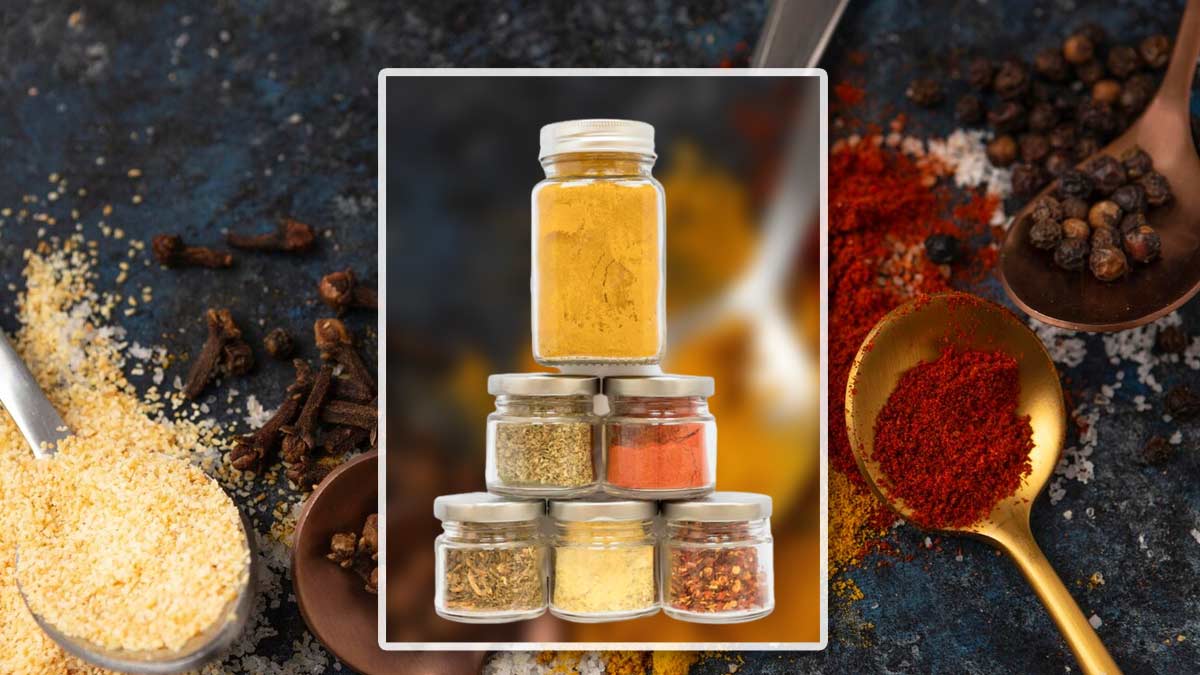
Popular Indian spice brands like MDH and Everest Masala have come under scrutiny after Hong Kong's food safety authorities, as reported by The Quint, found "concerning levels of the chemical Ethylene Oxide in several of their products."
The findings surrounding popular masala brands like MDH and Everest have raised alarm bells for countless Indian households where these spice mixes are a daily staple. For many, the idea that their beloved garam masala or chat masala could potentially harbour cancer-causing agents is a worrying prospect.

"We've been using MDH masalas for years, and the thought that they could be harmful is quite unsettling," says Ravi Sharma, a homemaker from Delhi.
Sanjana Rao, a working professional from Bangalore, echoes similar sentiments, "Everest's garam masala is a pantry staple in our household. I'm worried about the potential health implications, especially for my children who consume these spices regularly."

According to the National Cancer Institute, "Ethylene Oxide is a chemical compound used for fumigation and sterilisation purposes in various industries, including food manufacturing." It is effective in killing bacteria, fungi, and insects, making it useful for preserving and extending the shelf life of products like spices and herbs. However, The Quint states that "prolonged exposure to Ethylene Oxide has been linked to an increased risk of cancer."
The National Cancer Institute warns that "being exposed to ethylene oxide can cause lung damage, headache, nausea, vomiting, diarrhoea, and shortness of breath. Being exposed over a long time may increase the risk of certain types of cancer."
The use of ethylene oxide in food products has been banned in the European Union since 2011, and a usage limit has been put on the chemical in many places. The Centre for Food Safety (CFS) in Hong Kong stated that according to regulations, food for human consumption containing pesticide residue may only be sold if consumption of the food does not pose a danger or harm to health, as the International Agency for Research on Cancer has classified ethylene oxide as a Group-1 carcinogen.
Following the findings in Hong Kong, authorities in Singapore have also initiated a recall of affected MDH and Everest Masala products that tested positive for Ethylene Oxide residues exceeding permissible limits, as reported by The Quint.
"This has raised concerns among consumers and regulatory bodies globally about the potential health hazards of consuming contaminated spices," according to The Quint's report.
Don't Miss: When To Worry? From Pink To Brown, Here's What Your Period Blood Colour Says About Your Health

In India, the Food Safety and Standards Authority of India (FSSAI) has swung into action, directing importers to test consignments of MDH and Everest Masala products for Ethylene Oxide residues, according to The Quint. The Quint states that "the FSSAI has also reached out to the companies for clarification and is closely monitoring the situation to safeguard consumer interests."
Meanwhile, MDH has acknowledged the issue and stated that "they are investigating the matter thoroughly," as per The Quint's report. The company has assured consumers that "their products undergo rigorous quality cheques and meet all regulatory requirements."
Everest Masala has also responded, stating that "they adhere to strict safety protocols and are cooperating with authorities," as mentioned in The Quint's report.

Consumer advocacy groups, as cited by The Quint, have "urged heightened vigilance and transparency from manufacturers, calling for clear labelling and disclosure of sterilisation processes." The Quint advises that "consumers are advised to exercise caution and follow updates from regulatory bodies regarding the safety of their favourite spice brands."
As investigations continue and regulatory bodies take action, the controversy surrounding the presence of Ethylene Oxide in popular spice brands has raised concerns about potential health risks associated with consuming contaminated products, according to The Quint's reporting.
Herzindagi.com is Jagran New Media's gender and lifestyle vertical, catering to women of all age groups, helping them remain updated, on-trend and aware. To improve our performance and understand our readers' interests better, we have created this poll. This will take 2 minutes of your time, do help us out with this link.
Don't Miss: Beat The Heat: Expert Advice On Maintaining Optimal Gut Health During The Summer Months
For more such stories, stay tuned to HerZindagi.
Image credit: FreePik
Our aim is to provide accurate, safe and expert verified information through our articles and social media handles. The remedies, advice and tips mentioned here are for general information only. Please consult your expert before trying any kind of health, beauty, life hacks or astrology related tips. For any feedback or complaint, contact us at [email protected].